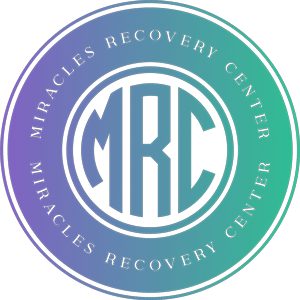Substance abuse is a topic that touches many lives, directly or indirectly. Understanding its various facets, from its root causes to its profound effects on everyday life, is crucial for developing empathy and effective interventions. This blog aims to unpack the complexity of substance abuse in a way that is both accessible and enlightening.
Defining Substance Abuse
Substance abuse refers to the harmful or hazardous use of psychoactive substances, including alcohol and illicit drugs. It often involves a pattern of increased consumption that leads to significant distress or impairment in daily life. According to the National Institute on Drug Abuse, these substances can alter the way the brain functions, affecting behavior and emotions significantly. Understanding the intricate dynamics of addiction is essential for developing effective strategies to address this complex issue Understanding Addiction and its Impact on the Brain.
While some individuals may experiment with drugs or alcohol out of curiosity or peer pressure, habitual use often leads to dependency. This pattern can quickly evolve from voluntary use to a compulsive need, driven by psychological and physiological factors. The distinction between use and abuse often lies in how the substance impacts an individual’s responsibilities and relationships. It’s critical to differentiate between occasional use and a problematic pattern that requires intervention.
Common Causes of Substance Abuse
Understanding the root causes of substance abuse helps in addressing it more effectively. Factors such as genetics, mental health issues, trauma, and environmental influences all play crucial roles in the development of substance use disorders. Genetic predispositions can increase the likelihood of addiction if an individual is exposed to drugs, while psychological disorders like depression and anxiety may drive people toward substance use as a form of self-medication.
Traumatic experiences, including early childhood abuse or loss, often leave lasting emotional scars that contribute to substance abuse as a coping mechanism. Moreover, societal pressures and environments filled with drug availability can also facilitate the onset of addiction. The impact of these factors demonstrates the necessity for comprehensive support systems, which can address these issues at both personal and community levels.
The Physical and Psychological Effects
Substance abuse impacts both physical and mental health. It can lead to chronic diseases, mental health disorders, and cognitive impairments, creating a cycle of dependency that is challenging to break. Physically, addiction to substances such as alcohol can damage vital organs, while drug abuse can affect heart health, leading to life-threatening conditions.
Psychologically, substance abuse often results in altered brain chemistry that fosters dependency. The pursuit of the euphoric effects becomes consuming, overshadowing all other aspects of life. Depression, anxiety, and paranoia can accompany drug use, exacerbating the individual’s mental health struggle. It’s essential to understand these consequences to recognize the need for comprehensive treatment that addresses both physical and psychological domains.
Impact on Relationships and Social Life
The effects of substance abuse extend beyond the individual, significantly impacting relationships with family, friends, and the broader community. It can lead to isolation, conflict, and breakdowns in communication. When a person is consumed by addiction, they might neglect their responsibilities, leading to strained relationships and social withdrawal.
Substance abuse often erodes trust, as individuals grapple with dishonesty to hide their addiction. Family dynamics can suffer, and children, in particular, may face long-term psychological challenges if raised in environments where substance abuse is present Drug Addict Parent: How Substance Abuse Affects Children. Recognizing these impacts is vital for creating supportive networks around affected individuals, offering them a path back to healthy relationships and community participation.
Work and Financial Consequences
Substance abuse often interferes with professional life, leading to absenteeism, reduced productivity, job loss, and financial instability. This, in turn, exacerbates stress and perpetuates the cycle of abuse. The financial strain of maintaining an addiction can deplete resources meant for essential living needs, resulting in poor quality of life.
Employers and colleagues often bear witness to the decline in performance and reliability, which can affect workplace morale. Individuals battling addiction may cycle through employment, facing dismissals due to erratic behavior. Understanding these consequences emphasizes the need for workplace interventions and policies that support employees facing these challenges, ensuring they receive appropriate help and encouragement to seek recovery.
Paths to Recovery and Rehabilitation
Recovery from substance abuse is a challenging journey that involves medical treatment, therapy, and the support of peers and loved ones. Understanding different recovery pathways can empower individuals and communities to support those in need. Comprehensive treatment plans, including detoxification, behavioral therapy, and support groups, are vital in addressing the multifaceted nature of addiction.
Family therapy, for example, is an effective tool that helps repair damaged relationships and restore communication Family Therapy for Addiction Treatment. Such therapeutic approaches offer an environment for individuals and families to address the emotional fallout of addiction, learning new strategies to cope with life’s challenges without returning to substance use.
The Role of Society in Combating Substance Abuse
Addressing substance abuse requires a comprehensive approach that includes public policy, education, and community outreach. Societal support systems play a critical role in both prevention and recovery efforts. Policies that promote awareness and provide access to mental health services can mitigate the impact of substance abuse.
Community initiatives that foster open dialogue about addiction help diminish stigma, encouraging individuals to seek help. Furthermore, public health campaigns can educate people about the dangers of substance abuse, emphasizing the societal benefits of supporting recovery programs. By recognizing the systemic nature of addiction, society can mobilize resources that contribute to effective solutions and enhanced quality of life for affected individuals.
Towards Greater Understanding and Support
In exploring the multifaceted nature of substance abuse, we uncover the importance of social support, compassion, and informed policies in combating its effects. By gaining a deeper understanding of this issue, society can better support individuals struggling with substance abuse and work towards meaningful change.





